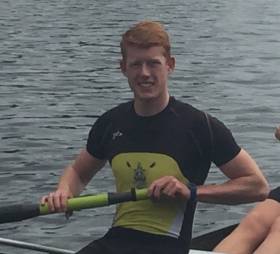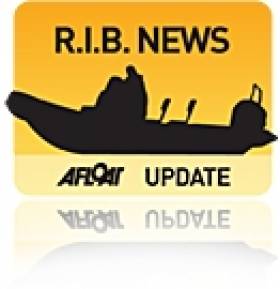Displaying items by tag: Cardiff Bay
Ireland Home International Team Chosen
#Rowing: The Ireland team for the Home International Regatta in Cardiff Bay on July 23rd has been chosen. The men’s senior four is an all-Portora unit and these rowers go into a strong-looking senior eight, with UCC.
Ireland senior team for Home International Regatta, Cardiff Bay, July 23rd. Not necessarily in crew order.
Men
Eight: D Keohane, B Keohane, B Rix, R Ballantine, L Seaman, C McLaughlin, R Thompson, N Farrell; cox: G Connolly. Four: Rix, Ballantine, Seaman, McLaughlin. Four, coxed: B Keohane, D Keohane, Farrell, Thompson; cox: Connolly. Pair: L McCann, M Taylor. Lightweight Pair: C Higgins, S Kearney.
Sculling – Quadruple: T Dillon, A Prendergast, D Begley, D Kelly. Double: Prendergast, Begley. Lightweight Double: A O’Connor, H Sutton. Single: Kelly. Lightweight Single: Dillon.
Women
Eight: G Crowe, H O’Neill, A Keogh, C Joyce Hearne, D Maguire, K Shirlow, L McHugh, S Higgins; cox: G Canham. Four: Keogh, Joyce Hearne, A Feeley, R Maguire. Four, coxed: McHugh, Higgins, R Davidson, S Corr; cox: Canham. Pair: D Maguire, Shirlow. Lightweight Pair: Crowe, O’Neill.
Sculling
Quadruple: O Blundell, M Piggott, S Bouanane, A Byrne. Double: Blundell, Bouanane, Lightweight Double: C Nolan, Byrne. Single: Piggott. Lightweight Single: L Heaphy.
#RIBs - Two top young British sailors are currently in the dock over an incident in Cardiff Bay four years ago in which a young girl suffered severe brain injuries.
As the Daily Mail reports, the girl - who was 11 at the time and has not been named - was one of four youngsters sent flying after two RIBs, piloted by sailing prospects Elleni Morus and Nia Jones, collied in darkness while crossing the bay.
The duo, both aged 17 at the time, were in charge of a group of 24 girls aged from 10 to 14 on a school-break sailing course.
Morus and Jones are accused of acting recklessly before the collision that threw two young girls overboard, a third half-way into the water and a fourth from one boat to the other.
The court heard how the group set out across the bay in four boats, two of them powerful RIBs, to return to their hostel after nightfall, but allegedly did not use lights.
It was also heard that the girls in Jones' speedboat had been encouraging her to drive faster and attempt swerves and wave jumping.
Both parties admit piloting boats without navigation lights but deny failing to travel at a safe speed and failing to keep lookout.
The Daily Mail has more on the story HERE as the trial continues.































































